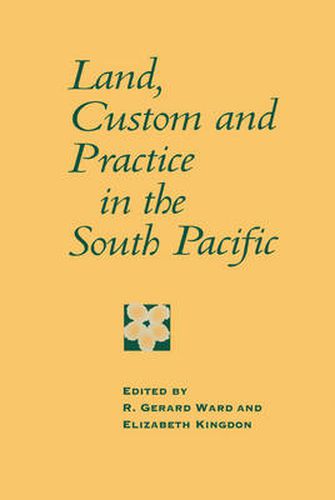Readings Newsletter
Become a Readings Member to make your shopping experience even easier.
Sign in or sign up for free!
You’re not far away from qualifying for FREE standard shipping within Australia
You’ve qualified for FREE standard shipping within Australia
The cart is loading…






Land tenure arrangements are intimately linked with the organisation of society, the economy, political structures and geography. In the South Pacific Islands the majority of land is held by community groups under ‘customary’ or ‘traditional’ forms of tenure. This book argues that land formerly held in common is now often controlled and used exclusively by individuals or nuclear families - it is being privatised. Detailed case studies demonstrate these trends in Western Samoa, Tonga, Vanuatu and Fiji. Parallels are noted from Asia, Europe and Africa, where comparable forces of commercialisation, individualisation and socio-political change have brought comparable results. The denial of these trends by policy makers in the region reflects an interest in maintaining the image of traditionalism and its associated status and power. The divergence between rhetoric and reality creates dilemmas for many Pacific Islanders and their leaders.
$9.00 standard shipping within Australia
FREE standard shipping within Australia for orders over $100.00
Express & International shipping calculated at checkout
Land tenure arrangements are intimately linked with the organisation of society, the economy, political structures and geography. In the South Pacific Islands the majority of land is held by community groups under ‘customary’ or ‘traditional’ forms of tenure. This book argues that land formerly held in common is now often controlled and used exclusively by individuals or nuclear families - it is being privatised. Detailed case studies demonstrate these trends in Western Samoa, Tonga, Vanuatu and Fiji. Parallels are noted from Asia, Europe and Africa, where comparable forces of commercialisation, individualisation and socio-political change have brought comparable results. The denial of these trends by policy makers in the region reflects an interest in maintaining the image of traditionalism and its associated status and power. The divergence between rhetoric and reality creates dilemmas for many Pacific Islanders and their leaders.